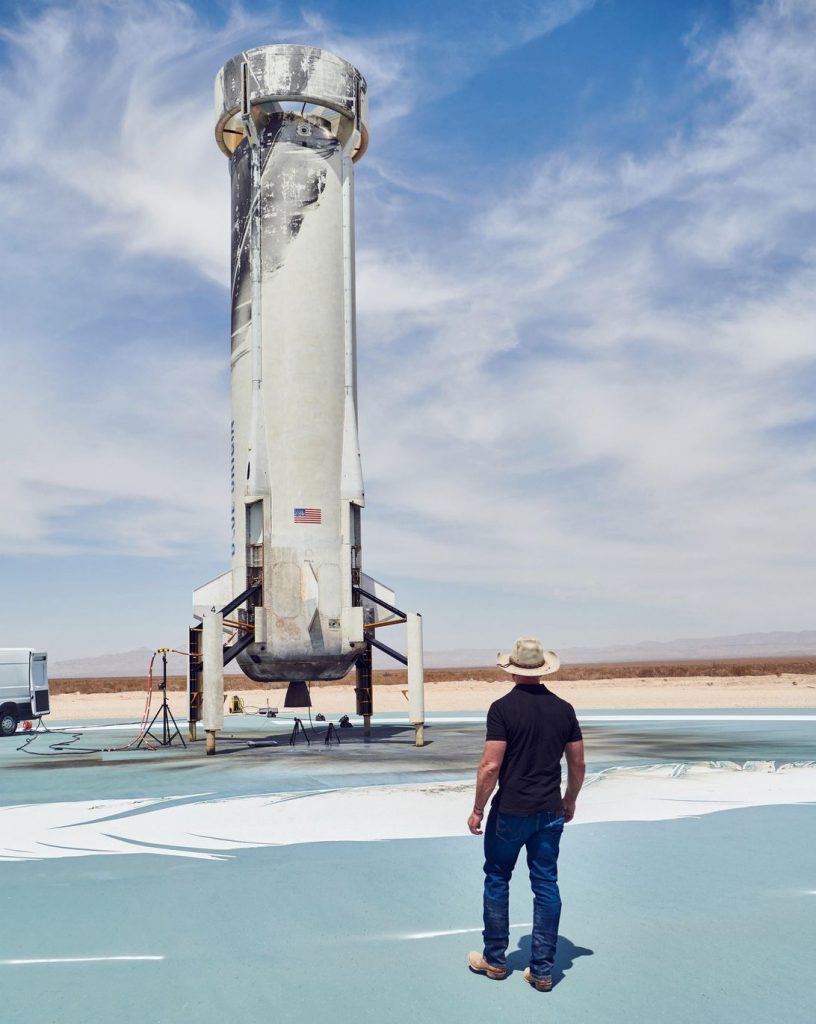On Tuesday, Blue Origin and Amazon founder, Jeff Bezos, became the second billionaire to visit the edge of space and do microgravity somersaults, a week and a half after Richard Branson and his Virgin Galactic spaceplane soared aloft from New Mexico. The journeys have made for a historic month in spaceflight, inspiring a fair amount of wonder and awe.
But perhaps an even more common reaction is a hard eye roll accompanied by some comment about obscene wealth or egos, or worse.
After years of watching Bezos, Branson and SpaceX’s Elon Musk expand their empires upward beyond the firm grip of gravity, I think such cynicism might be fair, but it lets the rest of us off the hook. The spectacle of the billionaire space race also illuminates a sad truth about our future in space as a species: We’ve lost control of our own destiny in the cosmos.
Advantage: billionaires
Over five years ago, a Las Vegas oddsmaker gave Musk and SpaceX 5-to-1 odds of being the first entity to put humans on Mars. The odds of NASA being first were 80-to-1. At the time I thought this was a bit silly considering that NASA had already put people on the moon and SpaceX had just begun sending cargo to orbit.
Half a decade later, those odds look more reasonable: SpaceX is already launching and landing prototypes of its Mars rocket while we wait for the long-delayed debut of NASA’s Space Launch System meant for missions to the moon and beyond.
On top of that, the average person is much more likely to know what Elon Musk and SpaceX, and Jeff Bezos and Blue Origin, are up to in space than they are to be aware of NASA’s oft-postponed plans for the moon, Mars or the James Webb Space Telescope.
The blame for this disparity in attention falls more squarely on the shoulders of media people like myself than it does on NASA. It doesn’t help that the agency is at the mercy of a political system providing not only its funding but also its leadership, both of which can shift dramatically every few years.
So it’s no surprise that entrepreneurs like Musk and Bezos have been able to identify the gap left by an aging and inefficient institution like NASA, seize the opportunity to build a better rocket and paint a bolder vision for the future.
And herein lies the real problem. Musk’s grand ambition of populating Mars, and Bezos’ plan to move industry and perhaps some sweet new luxury condos into orbit, are unprecedented, civilization-level endeavors that were conceived primarily upon the whims of just two men.
Think about this. The odds now seem fair that when the first member of our species sets foot on another planet, it will be because Musk, aka the «Dogefather» — the world’s biggest fan of 420 and 69 jokes — decided to do it.
This is to take nothing away from Musk (well, maybe just a little bit).
Neither SpaceX nor Blue Origin immediately responded to a request for comment.
A return to public space
To me, complaining about billionaires wasting money on space when we have so many problems on Earth misses the point. What should be concerning, I think, is how the agenda and the public discourse on space are now largely driven by some of the world’s very richest individuals.
Maybe the efforts of these men and their companies will lead to profound benefits for humanity, but we could also decide as a society which ventures in space to pursue for their own sake, for our own sake.
Space could be the key to solving some of our greatest problems, whether it’s through space-based solar power, asteroid mining or yes, turning Mars into a backup planet. These are all pretty far-out ideas, to be sure, but there’s very little in the way of resources being dedicated to researching their potential, which is how things start to seem less far out.
And by the way, the history of space innovation suggests it might not be that crazy to expect that learning how to survive on the moon or Mars could also teach us new ways to lessen our own impact on Earth’s environment.
NASA paved the frontier of space for Musk, Bezos and others to take over production of rockets that look to be more capable, efficient and cheaper than the pioneering, publicly funded spacecraft of previous eras. That’s great. Now it’s time for we the people to decide which frontiers we want to explore next, rather than wait for another rich dude to take the lead.
